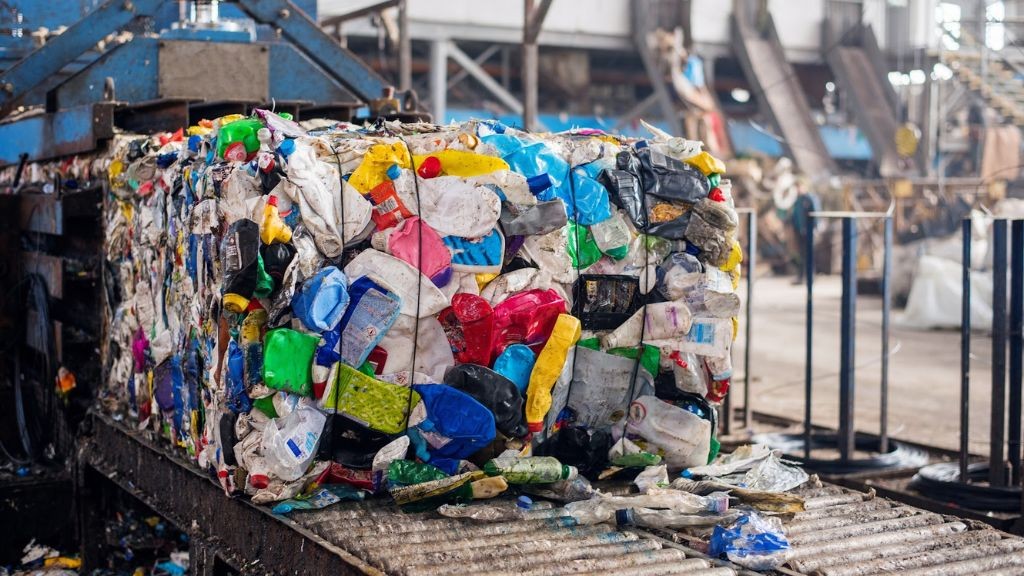G7 Oceans plastic charter is a catalyst for change that should help set ideals into action
Building on a renewed plastic waste focus

In what feels like a blink of an eye, the omnipresence of plastic waste has captured media attention and public awareness like never before. The unprecedented global alignment on prioritizing the management of plastic waste is akin to how the world embraced the seriousness of climate change. The bombardment of images of marine life ingesting plastic pollution has moved the conversation upstream from concerned citizens to the highest levels of governments and business, and to their supply and value chains.
Initiated in April 2018, the United Kingdom Plastics Pact has brought together businesses from across the entire plastics value chain, as well as governments and non-governmental organizations, to tackle plastic waste. The European Union published "A European Strategy for Plastics in a Circular Economy" that presents key commitments for action at the EU level. The Ellen MacArthur Foundation is also uniting governments and global companies under "The New Plastics Economy - Rethinking the Future of Plastics." And closer to home, Canada hosted the G7 Summit in June 2018, which produced the Oceans Plastic Charter that will require Canada to develop a domestic strategy. When China suddenly closed the door on recycled material imports, it also served as a stark reminder that there's far too much waste, particularly in plastics, and emphasized the need to look both upstream and downstream for reduction solutions and new markets for recyclables.
While the collective focus on plastic waste is an opportunity for governments to enact policy and businesses to create value, we must be wise to ensure that next steps do not result in knee-jerk policymaking or market shifting that negates intentions. The desired outcome for new policy is to reduce waste through a transformation at each phase of the circular economy: collection, production and end-of-life management. Real solutions are rooted from adjustments at each phase, and no single point is solely responsible. In fact, success will depend on a multi-faceted approach.
The G7 Oceans Plastic Charter
The G7 Oceans Plastic Charter is a catalyst for change, and the corresponding Canadian strategy will set ideals into action. As such, it requires purposely designed principles that offer stakeholders clear direction to meet targets, and should include the following four suggestions:
• Set Standards: Central to transitioning from intention to action is setting parameters and goals for assessing success, and a clear plan that the marketplace can follow. This includes creating product standards and specifications that improve links between production, consumption and recycling activities. For example, the current untethered use of the universal recycling symbol disconnects consumer use from recycling market realities, and allows producers to make recycling claims without knowing if their product or package actually makes it to a recycling end-market.
• Define Recycling: As a key pillar of the circular economy and component of measuring success against goals, definitions must be refined as we expand collection of plastic discards for reintegration into production cycles. Recycling, in its current catch-all definition, as understood by the public, does not carry the same connotations amongst policy makers, producers, recyclers and environmental groups. Defining terminology will no doubt be a contentious exercise, but it is absolutely critical for a national strategy to succeed.
• Scope the Objective: Identifying problematic material will determine points of focus for enacting meaningful change. For example, specific products have become global symbols of the plastics problem, including straws, single-use bags and fishing nets. These materials are problematic for different reasons, which means their solutions will vary. Some are designed for single use, some are not highly valued or are difficult to manage in recycling markets. Do they contribute to litter but remain recyclable? Are they over-consumed, and therefore over-disposed? Each material that causes pollution has a unique solution through regulation, design and education.
• Use Accountable and Transparent Reporting: While businesses and governments announce various commitments, it is independent tracking, quantifying and, most importantly, verifying contributions, that are at the heart of accurately measuring returns and meeting a myriad of lofty goals.
Plans are only good intentions until they turn into hard work. We are seeing a bevy of directives around the world aimed at plastic waste that require considerable coordination, both upstream and downstream. In doing so, we will have to adopt new thinking, new habits and new expectations. With the contemporary, renewed focus on properly managing plastic waste, including the G7 Oceans Plastic Charter, we have reason to be optimistic that this challenge can be met.
Jo-Anne St. Godard is the executive director of the Recycling Council of Ontario.
This article was originally published in the October 2018 edition of Recycling Product News, Volume 26, Number 7.



